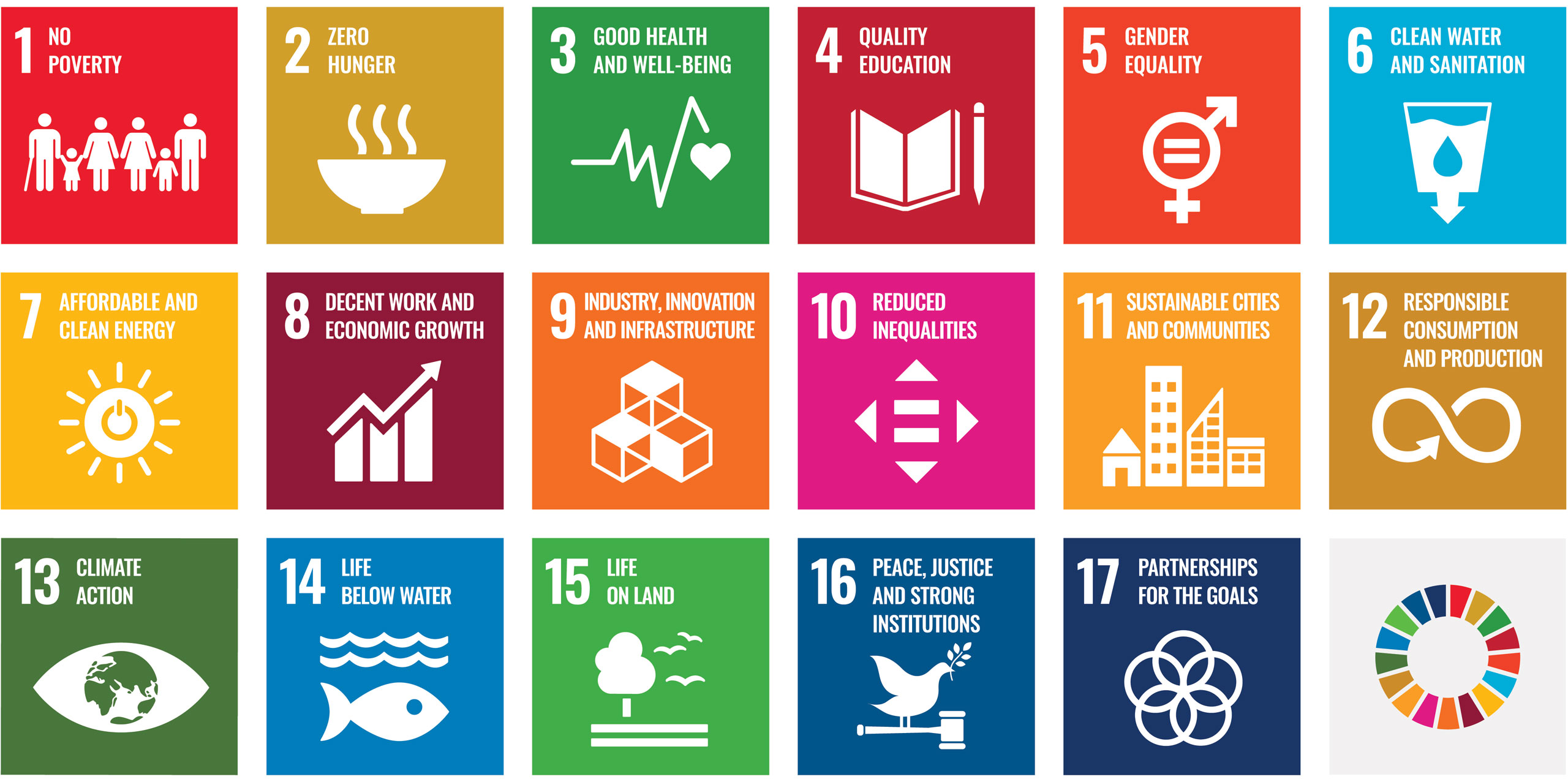You may have noticed that many sustainable brands align their practices with the UN’s Sustainable Development Goals (SDGs). These global objectives, established as a universal call to action to end poverty, protect the planet, and ensure prosperity for all, have significant implications for individuals, businesses, and societies worldwide.
Lets have a look at what it means for us…

“Sustainable development is how we must live today if we want a better tomorrow, by meeting present needs without compromising the chances of future generations to meet their needs. The survival of our societies and our shared planet depends on a more sustainable world.”
– The united Nations
What is SDG (Sustainable Development Goals)?
The Sustainable Development Goals (SDGs) are a collection of 17 global goals set by the United Nations General Assembly in 2015. These goals are designed to be a “blueprint to achieve a better and more sustainable future for all” by addressing various global challenges, including poverty, inequality, climate change, environmental degradation, peace, and justice.
The SDGs are a call to action for all countries and organizations to promote prosperity while protecting the planet. They aim to ensure that no one is left behind and that the needs of present generations are met without compromising the ability of future generations to meet their own needs.
How Will it Affect the Fashion and Clothing Industry?

The fashion industry plays a significant role in the global economy and has a considerable impact on the environment and society. The implementation of SDGs has the potential to significantly affect the fashion industry in the following ways:
- Sustainable Sourcing and Production: SDGs emphasize responsible consumption and production. This means that the fashion industry will need to focus on sustainable sourcing of materials, eco-friendly production processes, and reducing waste and pollution.
- Fair Wages and Decent Work: Goal 8 of the SDGs focuses on promoting sustained, inclusive, and sustainable economic growth, full and productive employment, and decent work for all. This will push the fashion industry to ensure fair wages, safe working conditions, and overall better treatment of workers within the industry.
- Reducing Environmental Impact: Goals such as responsible consumption and production (Goal 12) and climate action (Goal 13) will drive the fashion industry to minimize its environmental impact by reducing carbon emissions, conserving water, and minimizing waste.
- Social Responsibility: SDGs also emphasize gender equality, responsible consumption, and the eradication of poverty. This will encourage the fashion industry to address issues such as gender equality, fair trade, and poverty alleviation within their operations and supply chains.
Is the Sustainable Development Goals Unrealistic
This goals are set to be fulfilled by 2030. Are they unrealistic? The African post and The Heritage Foundation have some reservations and criticism over the development programme:

The African Report
The African Reports’s critique of the UN’s Sustainable Development Goals (SDGs) encompasses 8 key reservations. Firstly, the non-binding nature of the goals raises concerns about their enforceability. Additionally, the SDGs are deemed vastly underfunded, lacking the necessary financial support to drive impactful change.
The perceived lack of urgency, ambiguity, and sheer quantity of the goals also draw criticism. Furthermore, the influence of politics on the goals, their focus on setting targets rather than prioritizing rights, and their potential to exacerbate global inequality are highlighted as areas of concern.
These reservations underscore the complexities and challenges associated with the practical implementation and efficacy of the SDGs.
The Heritage Foundation
The Heritage Foundation offers a critical perspective on the United Nations‘ Sustainable Development Goals (SDGs), characterizing them as unrealistic and fundamentally flawed. Their analysis highlights several key points:

The SDGs are viewed as off-track, with significant shortcomings in reaching their targets, prompting a high-level summit and appeals for increased funding. Additionally, comparisons with the Millennium Development Goals (MDGs) reveal the SDGs’ ambitious and impractical objectives, featuring an expanded number of goals, targets, and indicators.
Criticism is directed towards the SDGs’ setting of exceedingly ambitious targets, such as “ending poverty everywhere” which are seen as wishful aspirations rather than achievable goals. Moreover, concerns are raised about the imprecise nature of the SDG goals and targets, with issues related to poor data quality, data gaps, and a lack of clear priorities.
What does this mean for us?
Wednesday readers, it’s time to break free from the cycle of waiting for higher powers to make things right. Throughout history, we’ve often been led to believe that certain things were in our best interest, only to realize we were being misled.
Instead of relying on others to initiate change, it’s crucial to take action that resonates with our values.
The Sustainable Development Goals (SDGs) have been a focal point in the pursuit of global sustainability. While they offer a framework for addressing complex global challenges, there are criticisms surrounding their effectiveness.
Amidst these discussions, it’s essential to recognize the power of individual action.
Each of us possesses the ability to effect significant change through our choices. Consider this – if all advocates of sustainable fashion unequivocally refused to support brands that exploit workers, this unified stance would reverberate, compelling brands to swiftly adopt ethical practices.

We are the catalysts for change, and our individual actions can create tidal waves of impact.
By aligning our choices with our values, we can collectively influence industries and drive positive transformations. It’s within our grasp to spark significant change and inspire widespread progress. As we navigate through the week, let’s remind ourselves that the impetus for transformation begins with us, and it’s within our individual actions that the seeds of progress are sown.

